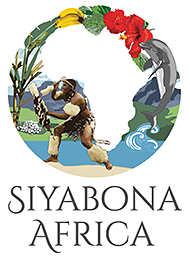
Provincial Capital - Pietermaritzburg
Largest City - Durban
Languages - Zulu, English, Xhosa, Afrikaans
Population - 10,014,500
KZN Climate
KwaZulu-Natal's climate is widely described as year-round and tourist-friendly. This South African holiday destination is enveloped by the warm Indian Ocean on the east and to the west are the grand Drakensberg Mountains.
KwaZulu-Natal has a warm, sub-tropical climate with very hot and humid summers during the months of November, December and January. Winters are reasonably warm during June and July. Winter sunshine lasts for almost seven hours a day, thus allowing for diverse outdoor adventure, beach and aquatic activities.
KZN People
The people of KwaZulu-Natal are some of the friendliest in the country. South Africa has a rich diverse population, four major race groups and more than 10 official languages. Several ethnic groups all form part of the diversity of people, languages and culture of this country.KZN History
KwaZulu-Natal's history takes us to the year 1497 on Christmas Day when Portuguese Explorer Vasco Da Gama discovered this land of vast greenery, wildlife and untold treasures. Natal, which means Christmas in Portuguese, gave rise to the original name for this region.
The end of the apartheid era in 1994 saw a new name for the territory, which is now widely known as KwaZulu-Natal, mainly because of the majority Zulu population in the Province.
KZN Culture
Many cities, towns, and the wide mix of different races all add to the rich diversity of the province. The Black population has several ethnic groups that form the distinct African culture that envelops the province. They speak many different languages and their impressive dance and musical abilities contribute to the strong cultural stance that KZN holds. KwaZulu-Natal also has a high Indian population in comparison to any other South African Province.
Durban in particular, is occupied by a vast majority of Indian people. Their notorious spicy cooking and hot foods contribute a touch of colour to the city. All in all, the culture of KwaZulu-Natal is mixed with character, dance, music, history and nations with an interesting story to tell.
KZN Languages
Zulu (primarily spoken by South African Blacks) is widely spoken in KwaZulu-Natal, but is also spoken by the Indian, White and Coloured population. English is the administrative language and is spoken and understood by the majority people as well. Xhosa and Afrikaans are also commonly spoken languages in KwaZulu-Natal.KZN Activities
There is plenty to do in KZN. Each city and town has something to offer. Great safaris and wildlife viewing is a favorite amongst tourists and locals alike, and can be done in selective nature reserves and KwaZulu-Natal safari lodges.
For modern and trendy activities, the city of Durban seems to be the hot spot and the centre of entertainment and business. Excellent shopping facilities, entertainment centers and casinos are splayed across the city.
They are elegant and lively and fun for all ages. KwaZulu-Natal also boasts a number of beach resort towns, making it a popular South African holiday destination. Due to the warm tropical weather most parts of the year, no doubt KwaZulu-Natal has a beach culture that is unsurpassed by any other province in the country.
Visa Requirements for South Africa
For accurate and current visa information for South Africa, please contact a South African Consulate or South African Embassy in your home country.Safety
Safety is a major concerned in the country but as long as you are alert and cautious, your visit to South Africa should be quite pleasant. Using public mini taxis are not advisable, especially in KwaZulu-Natal, rather go with buses or rented cars.
Never leave valuables lying around in obvious places. Keep copies of all important documents at your KwaZulu-Natal accommodation and try not to wear expensive jewels while discovering the city. Leave the fancy stuff for another time.
Never get too friendly with suspicious looking people and report suspicious behavior immediately. Otherwise, don't be too paranoid, South Africa is a wonderful place. A beautiful country to explore.
Be alert. Be safe. Have fun!
Economy
South Africa on the whole has a fairly stable economy compared to any other African state. The country has come a long way, but still has a long way to go. KZN has a high unemployment rate but developments are on the way to curb this national predicament. It is the second largest provincial economy in the country, after Gauteng. KwaZulu-Natal's major economical sectors are manufacturing, exports, tourism and agriculture.Travel
Public Transport on the whole is not as scheduled in South Africa as it is in Europe. Buses and trains have irregular times and prices and costs of tickets change all the time, due to higher inflations. Rental cars are a safer option as well as dial a taxi. Air travel in the country is safe, efficient and reliable.
KwaZulu-Natal's major airport is in Durban. There are also many tour guides and local tour buses that can be used. South African roads are generally well-developed, but be cautious and obey the speed limits, as the country has a high road accident rate.

